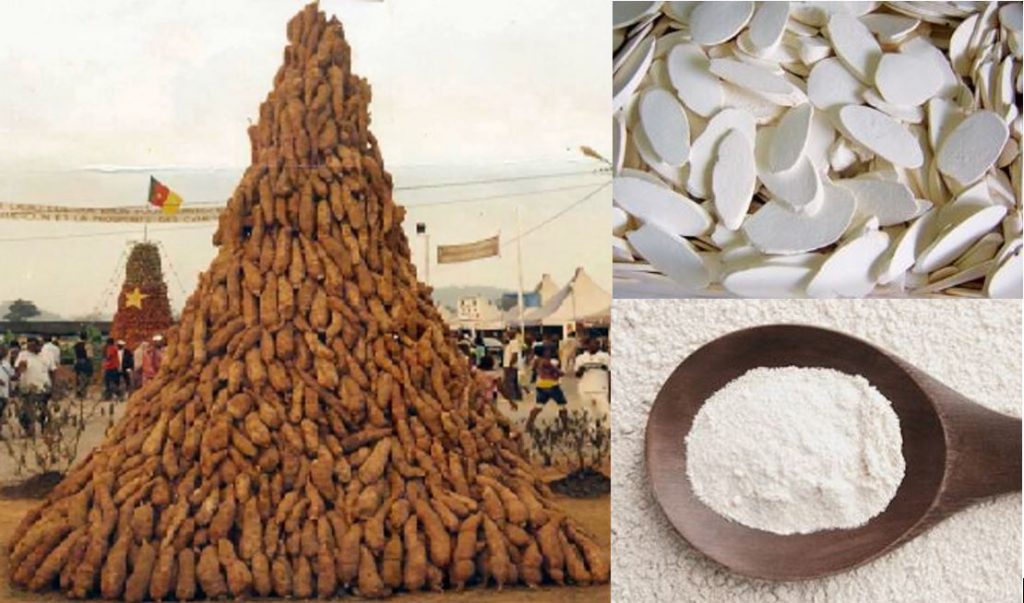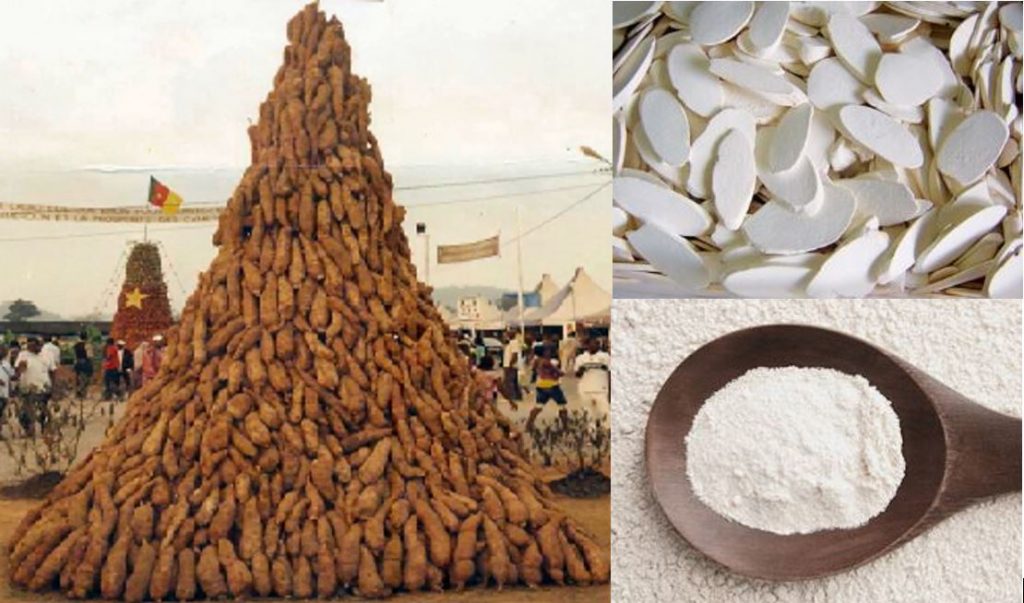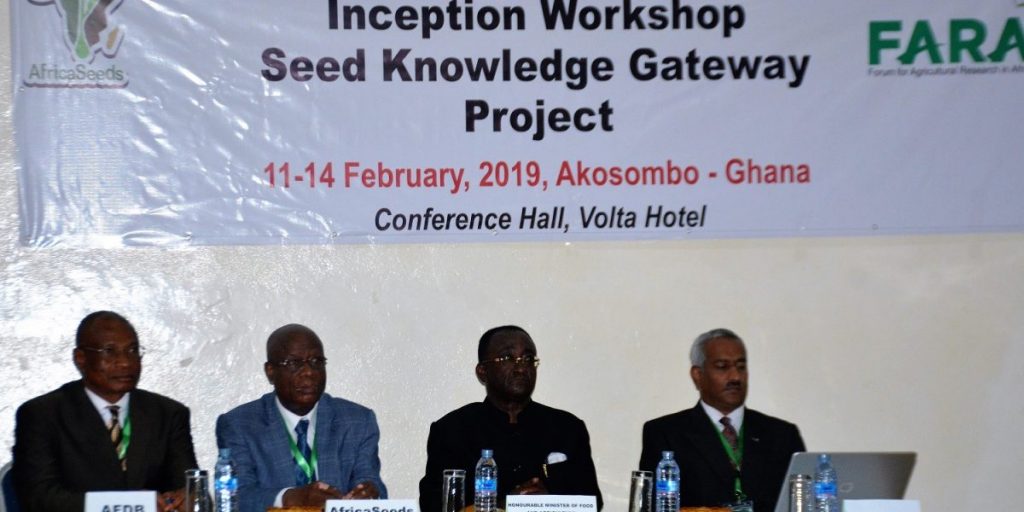TAAT and partners mobilise $500,000 for technology outreach programme
What started off as a conversation over lunch at a TAAT meeting organised by the Capacity Development and Technology Outreach Compact (CDTO) of Technologies for African Agricultural Transformation (TAAT) in February 2019, has resulted in the award of a grant for USD 500,000 over the next two years, to be implemented jointly by TAAT and partners in Tanzania, Kenya and Ghana.
The CDTO Compact led by Forum for Agricultural Research in Africa (FARA), which leads the consortium of partner institutions, received the signed grant agreement from International Fund for Agricultural Development (IFAD) at the the end of March 2020.
The grant is to facilitate the implementation of ‘Small scale dryers for post-harvest management enterprises in Africa’. The project is expected to involve partners from Tanzania, Kenya and Ghana (mainly institutions that are partners of the Cassava compact), and other private sector partners involved in dried horticultural products as a complementary set of users of the technology.
Partners involved, so far, include FARA, the Center for International Agricultural Research of the Chinese Academy of Agricultural Sciences (CIAR-CAAS); Kakindo Seed Farm, United Republic of Tanzania; International Institute of Tropical Agriculture (IITA); the Kenya Agricultural and Livestock Research Organization – Agricultural Mechanization Research Institute (KALRO-AMRI), Kenya; Adela Foods, Ghana; and the GRATIS Foundation, Ghana.
Furthermore, the consortium will work in close collaboration with the IFAD Country offices in the three countries in the implementation of the project.
The TAAT-CDTO Compact intends to apply an Innovation Systems approach to the management of the project: while the activities have been defined and budgeted for, the mode of implementation is collaborative and inclusive, to achieve a product that matches the needs of many agricultural stakeholders in Africa, says Krishan Bheenick, Coordinator of the TAAT-CDTO Enabler compact.
The project addresses the issue of post-harvest physiological deterioration which is a major constraint on the production and marketing of fresh produce and which affects the value of cassava tubers within 2-3 days of harvest. Therefore drying is an important technology that can remove the barrier of rapid deterioration, to allow farmers and traders to enter the market with a longer lasting product.
While the project aims principally at Cassava producers in rural areas of these countries, producers of complementary value chains, such as seasonal fruits, can also make use of such dryer technology.
The main objective of the project is to facilitate the adaptation and downstream availability of food dryer technology, already available in China and to demonstrate its applicability in the African context.
Dryer technologies available in Africa are at either artisanal or industrial scale. This project will introduce a technology that fits between these extremes and enables small-scale producers to become more active value chain actors, allowing them to access larger markets and trade by increasing the level of product preservation.
The project aims to reach 3,720 direct and 33,500 indirect beneficiaries among small-scale producers and processors at the production end of highly perishable foods such as cassava roots and seasonal fruits in these three countries.
The project development process – a collaborative process
Krishan Bheenick explains that the original gathering where the idea of the project sprouted was a itself joint intervention between FARA
and AfricaSeeds held in Akosombo, Ghana where the CDTO Compact brought the representatives of the TAAT Commodity Compacts (Wheat, Livestock, Cassava, Rice and High Iron Beans) to interact with the national focal points of AfricaSeeds from 10 countries and representatives of nine African regional and sub-regional organisations.
Dr Jonas Chianu, representing the African Development Bank, expressed delight over the meeting between TAAT and AfricaSeeds representatives, given the importance of access to quality seeds in the implementation of TAAT.
The conversation began amongst Dr Charles Muzanila, from Kakindo Seed Farm in Tanzania, producing quality seeds for the Cassava compact; David Karanja from KALRO, Kenya working with the High Iron Beans Compact, who later brought in the KALRO-AMRI, and Peter Iluebbey, International Trials Manager at IITA, Ibadan, who was also representing the Cassava compact at the meeting.
Follow-up from the initial discussions and technical contributions from the partners, including Dr. Adebayo Abass, Coordinator of the Cassava compact and Dr Noah Wawire of KALRO-AMRI, enabled FARA to put together a proposal which was then discussed with the IFAD country office in Accra.
The TAAT-CDTO’s approach and the implementation of this South South and Triangular Cooperation (SSTC) project represents a merger of collaborators and a synergy of approaches between the activities under TAAT and the mainstream activities of FARA.
‘While FARA has been seen as playing an Enabler role, it has successfully integrated the spirit of the TAAT programme into its planning and execution of its activities’ says Dr Irene Annor-Frempong, Director, Research and Innovation at FARA.




